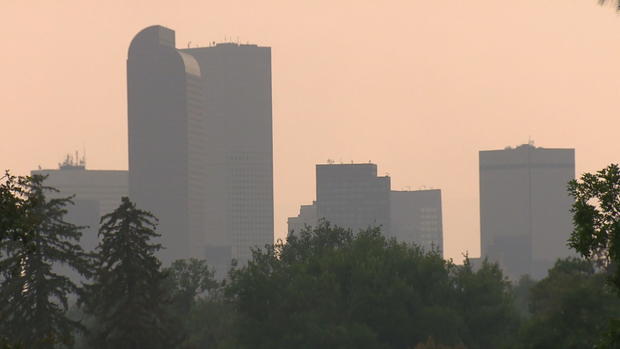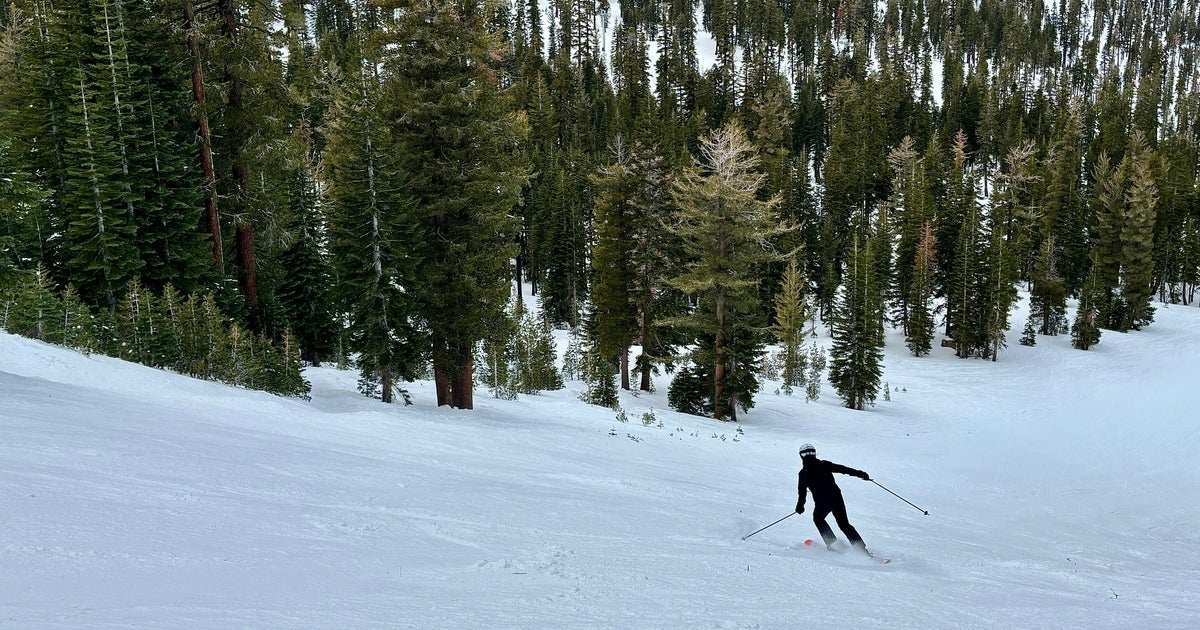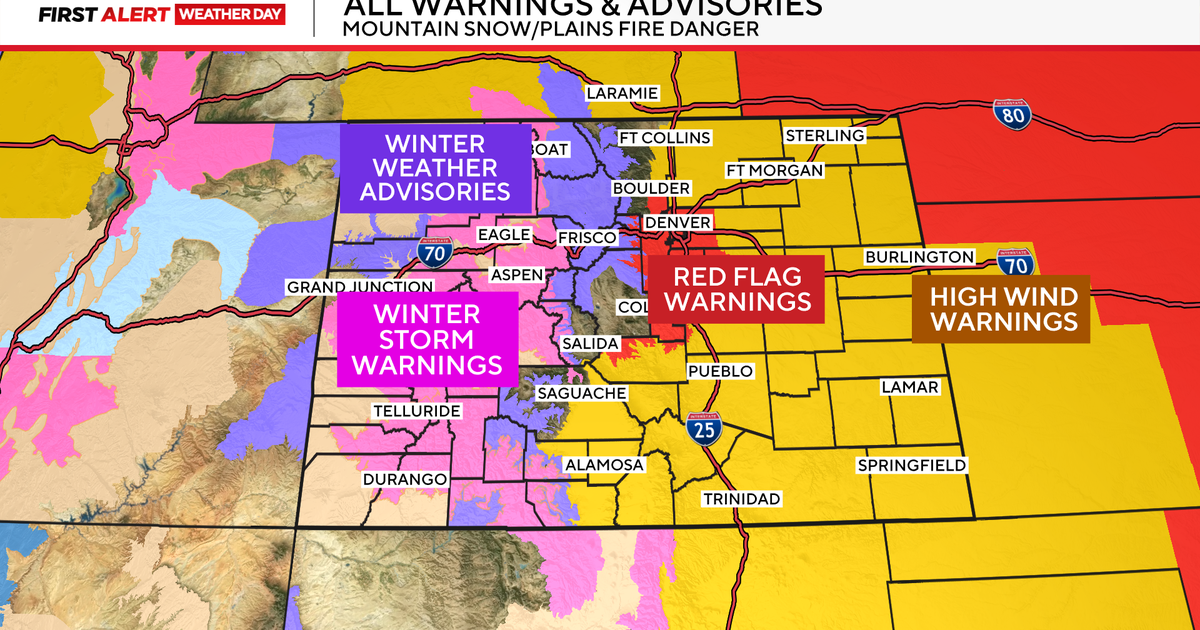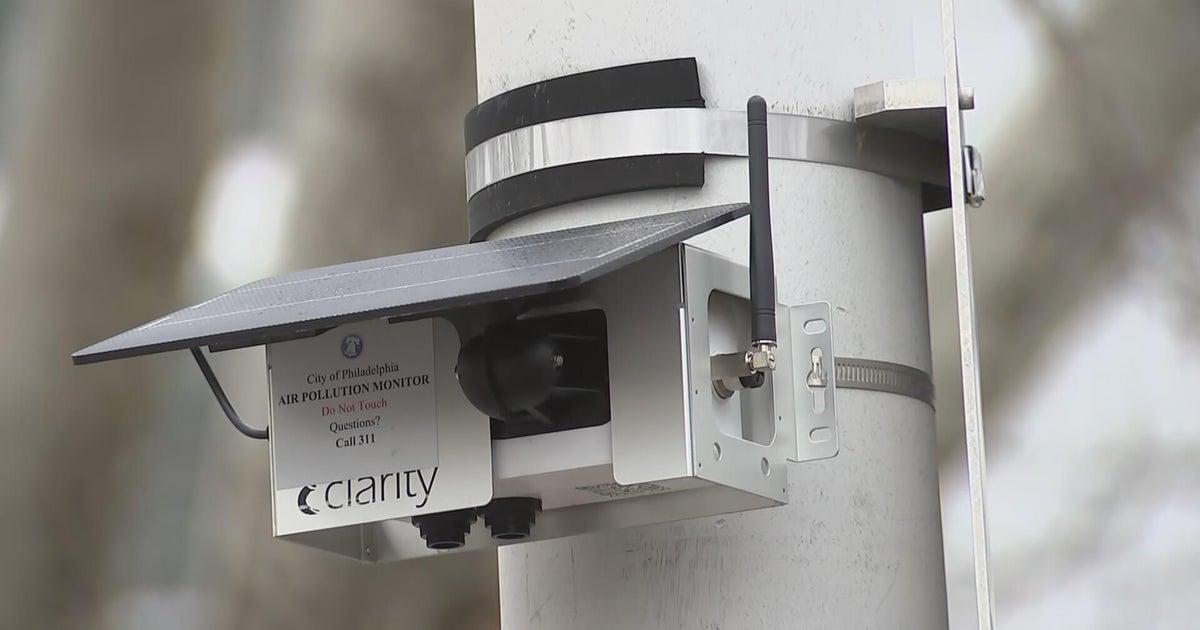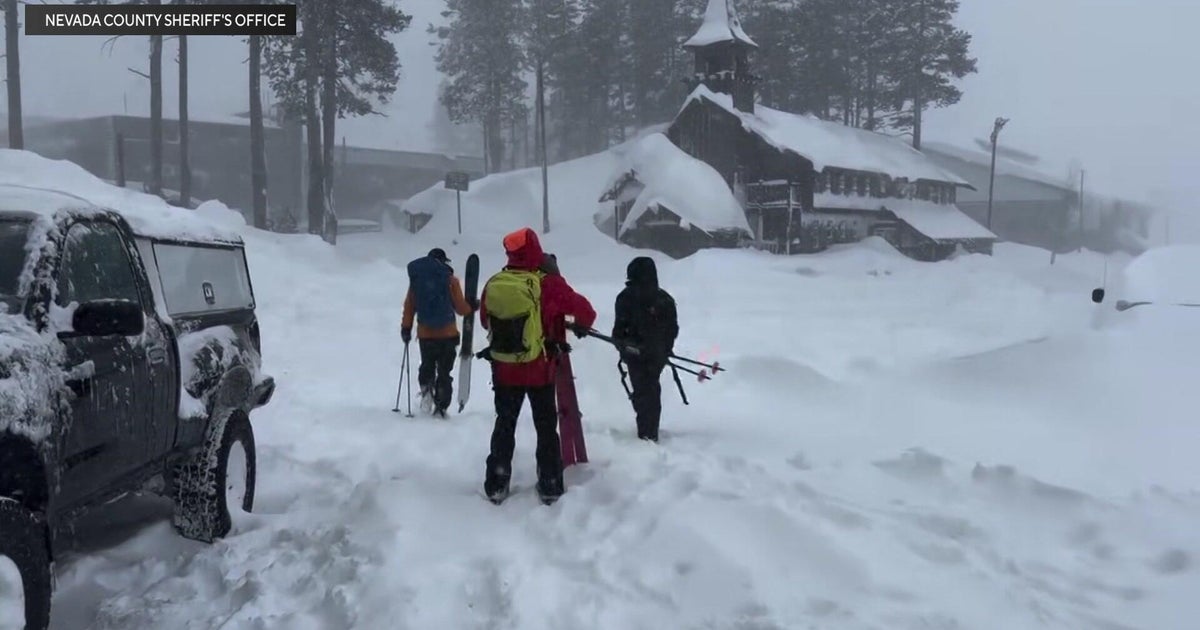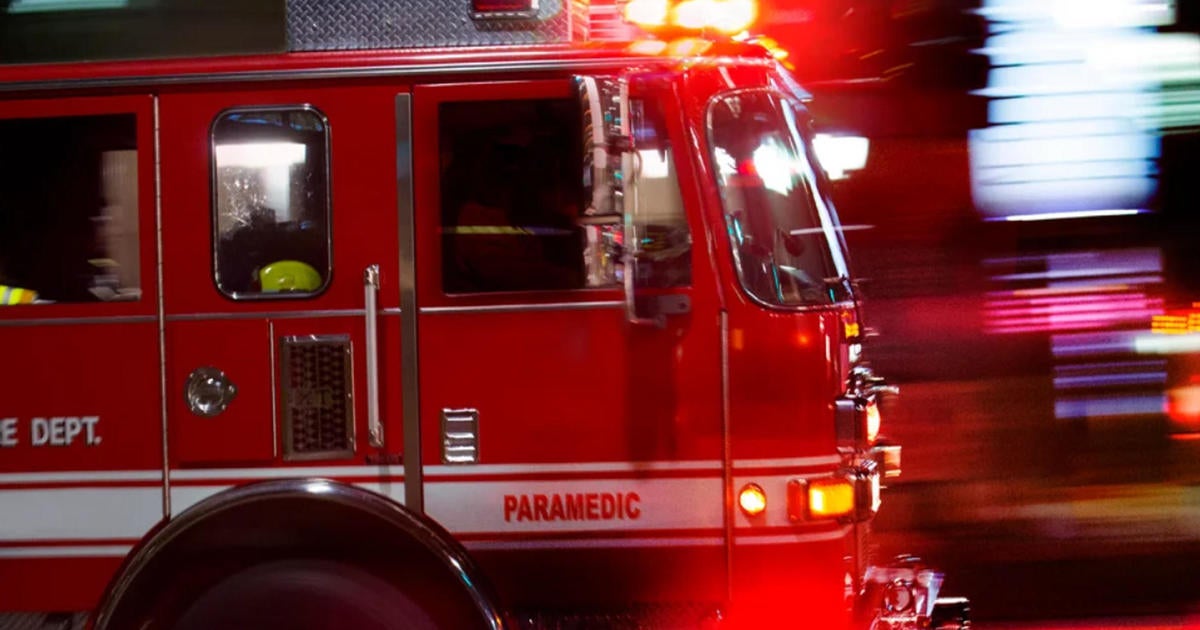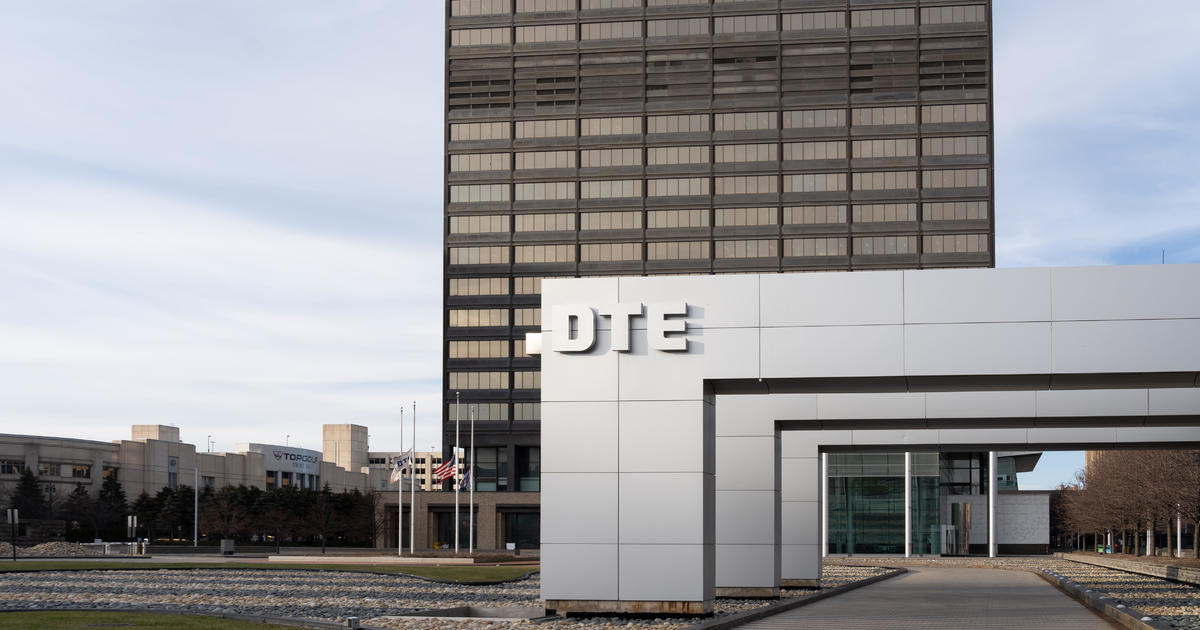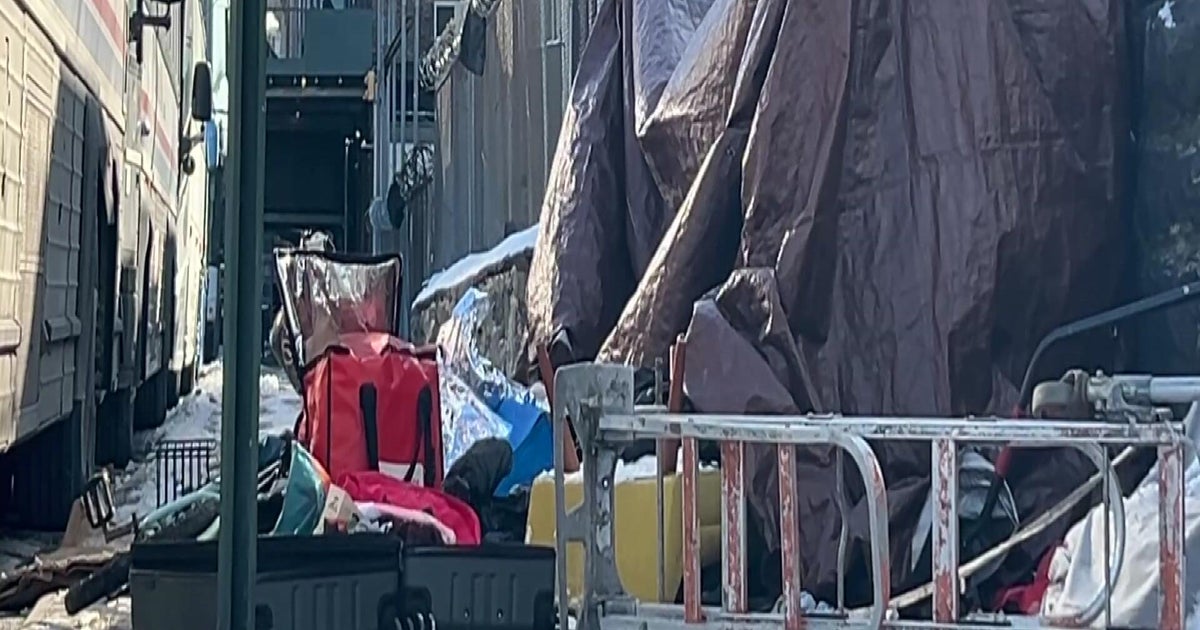Colorado Skiing Experts Call Climate Change 'An Existential Threat'
DENVER (CBS4) - The news in the blockbuster IPCC Climate Change report has the head of the United Nations calling it "A code red for humanity," with grim and wide ranging predictions. In Colorado, climate science has been talked about for decades with effects being felt in the colder altitudes and warmer cities.
It's been tangible in recent summers with poor air quality caused by fires which experts say are being worsened by climate change.
"We know that Denver's topography and our air pollution sources locally, already create very challenging air conditions, but you add to that…" began Denver's executive director Office of Climate Action, Sustainability, and Resiliency. Recent air quality is a place to point to show the effects. "The weekend that we just had is probably some of the best, awful marketing that we can do," she said in reference to explaining what climate change does.
In a city that's growing and dealing with a greater demand for water and power and more traffic, the effects are felt easily by people with breathing problems.
"If you're a person that is living with a chronic health condition of any type and certainly a chronic respiratory condition then your survivability is absolutely a threat." There is an economic effect noted Rink. "I can count on one had the number of people I spoke to just today who absolutely changed their plans for the weekend and did less economic activity because they had to stay home."
In the mountains, there's a very visible effect at times.
"Climate change is the biggest force that's going to affect our business and it's an existential threat," said Auden Schendler, senior vice president of sustainability for Aspen Skiing Company. "We've lost a month of winter since 1980. This is just measured on the ground here."
As averages rise so do extremes. More record heat and more problematic drought. A warmer atmosphere evaporates more moisture. Drier mountains mean more forest fire danger.
"Right now people can't get to Aspen because Glenwood Canyon is closed because of fires which the climate scientists told us would happen and then floods and runoff which the scientists told us would follow," said Schendler. "The thesis historically was that people will, in a climate change world, would want to escape, say Denver where it's 100 degrees, to come to the mountains, but last night I woke up choking because of that dense smoke here."
The cost is hard to figure. For people who can measure restrictions, it's very tangible when they might no longer be able to get a truck that emits a lot of emissions.
"The fixes to these problems are not impossible, we know how to solve climate we've got the technology we've got the policies on the shelf, we can deploy them it's going to be way, way cheaper to do that than to continue to see the kinds of catastrophes we're seeing."
The ski industry itself profits from people travelling great distances, for the most part using fossil fuels.
"Skiers didn't say, 'Hey get me to the ski resort in the most damaging way possible,'" he said. "The answer is this isn't your fault, because you drive an SUV, the answer is there's a systems problem and we're going to fix it systematically and we have the technology to do it."
In Denver, Rink hopes for cuts in methane emissions. Her office is looking at favoring changeover to electric water and space heating appliances.
"Because methane in the atmosphere is 24 times more potent of a greenhouse gas than carbon is. But it doesn't last as long in the atmosphere as carbon does."
Nearly 100% of home use of natural gas is for those purposes.
"If you want to keep your gas stove, you may keep your gas stove. We're not asking people to change those. We're really focusing on the big energy users."
Electric vehicles will make progress, but they are still beyond the reach of many in price.
Lifestyle change may be significant, but Schendler believes there is a cost of how we've been living we haven't been paying. Being a part of changing that, he believes is worthwhile.
"It's sort of like, yeah you made a sacrifice to raise your children, it was one of the most gratifying joyful things you ever did. Who wouldn't want to be part of some of these incredible solutions?"

